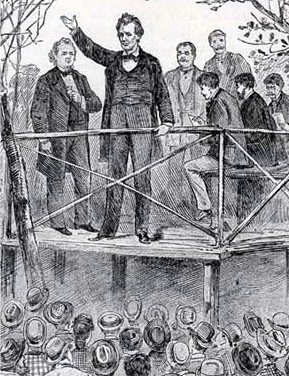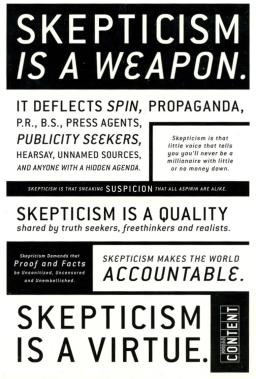A lot is being made of experience during this Presidential contest. McCain is the most experienced candidate, Clinton is more experienced than Obama, Obama is pretty green. I find all of this talk completely irrelevant. What experience do they have that makes them fit for being President? Clinton has, what, an extra term in the Senate? That is the extent of her elected experience. She was on the sidelines during Bill’s terms, but does that make her a more experienced candidate? Obama served in the Illinois Senate for 8 years before being elected to the US Senate. So, he has more years as an elected official than Clinton.
But, does it make any difference? Is there any correlation between success as a President and previous experience? And what kind of experience matters?
So, let’s see. Here is a list of all the US Presidents, as ranked, on average, by a number of scholarly lists. Unsurprisingly, the top 5 are Lincoln, FDR, Washington, Jefferson and Teddy Roosevelt. And here is a list of their previous executive experience and here is a list of their previous occupations. What do we see when we combine the two?
| # | President | Years in Office | Political party | Average ranking | Previous Experience |
|---|---|---|---|---|---|
| 1 | Abraham Lincoln | 1861–1865 | Republican | 1.58 | US House, 1847-1849 |
| 2 | Franklin D. Roosevelt | 1933–1945 | Democrat | 2 | Governor of NY, 1929-1933 |
| 3 | George Washington | 1789–1797 | refused to affiliate | 2.83 | General of the United Army of the Colonies |
| 4 | Thomas Jefferson | 1801–1809 | Democratic- Republican | 4.42 | Governor of VA, 1779-1781; VP of the US, 1797-1801 |
| 5 | Theodore Roosevelt | 1901–1909 | Republican | 4.83 | Governor of NY, 1899-1901; VP of the US, 1901 |
| 6 | Woodrow Wilson | 1913–1921 | Democrat | 6.58 | Governor of NJ, 1911-1913 |
| 7 | Harry S. Truman | 1945–1953 | Democrat | 7.18 | US Senate, 1935-1945; VP of the US, 1945 |
| 8 | Andrew Jackson | 1829–1837 | Democrat | 9 | General of the US Army; Military Governor of FL, 1821; US House, 1796-1797; US Senate, 1797-1798, 1823-1825 |
| 9 | Dwight D. Eisenhower | 1953–1961 | Republican | 10.73 | General of the US Army |
| 10 | James K. Polk | 1845–1849 | Democrat | 11.08 | Governor of TN, 1839-1841; US House, 1825-1839 |
| 11 | John Adams | 1797-1801 | Federalist | 12.17 | VP of the US, 1789-1797 |
| 12 | John F. Kennedy | 1961–1963 | Democrat | 12.5 | US House, 1946-1952; US Senate, 1952-1960 |
| 13 | James Madison | 1809–1817 | Democratic- Republican | 12.67 | US House, 1789-1797; Secretary of State, 1801-1809 |
| 14 | Lyndon B. Johnson | 1963–1969 | Democrat | 13.6 | US House, 1937-1949; US Senate, 1949-1960; VP of the US, 1961-1963 |
| 15 | Ronald Reagan | 1981–1989 | Republican | 13.88 | Governor of CA, 1967-1975 |
| 16 | James Monroe | 1817–1825 | Democratic- Republican | 14.08 | US Senate, 1790-1794; Governor of VA, 1799-1802, 1811; Secretary of State, 1811-1814, 1815-1817; Secretary of War, 1814-1815 |
| 17 | Grover Cleveland | 1885–1889 and 1893-1897 | Democrat | 15 | Governor of NY, 1883-1885 |
| 18 | William McKinley | 1897–1901 | Republican | 16.33 | US House, 1877-1883, 1885-1891; Governor of OH, 1892-1896 |
| 19 | John Quincy Adams | 1825–1829 | National Republican/Whig | 16.9 | US Senate, 1803-1808; Secretary of State, 1817-1825 |
| 20 | William Howard Taft | 1909–1913 | Republican | 19.67 | Governor-General of Philippines, 1901-1904; Secretary of War, 1904-1908 |
| 21 | Bill Clinton | 1993-2001 | Democrat | 20.67 | Governor of AR, 1979-1981, 1983-1992 |
| 22 | George W. Bush | 2001– | Republican | 21 | Governor of TX, 1995-2000 |
| 23 | Martin Van Buren | 1837–1841 | Democrat | 21.58 | US Senate, 1821-1828; Governor of NY, 1829; Secretary of State, 1829-1831; VP of the US, 1833-1837 |
| 24 | Rutherford B. Hayes | 1877–1881 | Republican | 22 | General of the US Army; US House, 1865-1867; Governor of OH, 1868-1872, 1876-1877 |
| 25 | George H. W. Bush | 1989–1993 | Republican | 22.14 | VP of the US, 1981-1989 |
| 26 | Chester A. Arthur | 1881–1885 | Republican | 25.5 | VP of the US, 1881 |
| 27 (tie) | Jimmy Carter | 1977–1981 | Democrat | 26.3 | Governor of GA, 1971-1975 |
| 27 (tie) | Gerald Ford | 1974–1977 | Republican | 26.3 | US House, 1949-1973; VP of the US, 1973-1974 |
| 29 | Herbert Hoover | 1929–1933 | Republican | 26.17 | Secretary of Commerce, 1921-1928 |
| 30 | Benjamin Harrison | 1889–1893 | Republican | 27.33 | General of the US Army; US Senate, 1881-1887 |
| 31 | Calvin Coolidge | 1923-1929 | Republican | 28.42 | Governor of MA, 1919-1921; VP of the US, 1921-1923 |
| 32 | Richard Nixon | 1969–1974 | Republican | 29.2 | US House, 1947-1950; US Senate, 1951-1953; VP of the US, 1953-1961 |
| 33 | James A. Garfield | 1881 | Republican | 29.57 | General of the US Army; US House, 1863-1880 |
| 34 | Zachary Taylor | 1849–1850 | Whig | 29.58 | General of the US Army |
| 35 | John Tyler | 1841–1845 | Whig/none | 31.75 | US House, 1816-1821; US Senate, 1827-1836; VP of the US, 1841 |
| 36 | Millard Fillmore | 1850–1853 | Whig | 32.41 | US House, 1833-1835, 1837-1843; VP of the US, 1849-1850 |
| 37 | Ulysses Grant | 1869–1877 | Republican | 33.42 | General of the US Army |
| 38 | William Henry Harrison | 1841 | Whig | 33.57 | General of the US Army; US House, 1799-1800, 1816-1819; Military Governor of Indiana, 1801-1813; US Senate, 1825-1828 |
| 39 | Andrew Johnson | 1865–1869 | Democrat/none | 34.67 | US House, 1843-1853; Governor of TN, 1853-1857, 1862-1864; US Senate, 1857-1862; VP of the US, 1865 |
| 40 | Franklin Pierce | 1853–1857 | Democrat | 34.92 | General of the US Army; US House, 1833-1837; US Senate, 1837-1842 |
| 41 | James Buchanan | 1857-1861 | Democrat | 36.58 | US House, 1821-1831; US Senate, 1834-1845; Secretary of State, 1845-1849 |
| 42 | Warren G. Harding | 1921–1923 | Republican | 37.33 | US Senate, 1915-1921 |
First, a couple of notes. The types of experience included are Senate, House, VP, cabinet secretary, governor, and general of the Army. I’m not quite sure cabinet secretary is all that relevant, but it is here. What isn’t included are ministers to foreign countries and state and municipal offices lower than governor (mostly because it would take too long to look those all up). And, any errors in the above table are a result of either errors on the Wikipedia pages or my copying of data (what other sources of error could there be?). FDR was also Assistant Secretary of the Navy, but I didn’t include that as it didn’t seem relevant. But, for completeness, I mention it here. Finally, I was going to have a total for years of experience, as I thought a plot of rank vs total years of experience would be interesting, but it didn’t seem like it would be easy to find out how many years Presidents served as Generals and how relevant that is anyways.
What can we learn? Well, looking at the three highest ranked Presidents, Lincoln had 2 years in the House, FDR had 4 years as governor of NY, and Washington had been General of the United Army of the Colonies, or essentially no experience in government. Lincoln is ranked so high because he presided over probably the most tumultuous time in US history and, had he performed poorly, the country likely would have split in two. Washington presided over the most precarious time in the country’s history: had he performed poorly, the US might have dissolved before it had even gotten started. And FDR was president during World War II. None of these men had much prior political experience, at least on the national level.
The bottom three? Harding was in the Senate for 6 years. Buchanan was in the House for 10 years, the Senate for 10 years, and was Secretary of State for 4 years. Finally, Pierce was in the House for 4 years and the Senate for 5 years. Each of these men definitely had more political experience at a national level than any of the top three before becoming President. It would seem that prior political experience is no great indicator of success as President.
Looking at the top 10 Presidents, 6 had less than 5 years of prior political experience, while only 2 had 10 or more years of prior experience. And the bottom 10? 2 had less than 5 years experience and 5 had 10 or more years.
It seems fairly safe to say that prior political experience is no guarantee of a good Presidency and lack of such experience is not an indicator of a poor President. I’m not saying that experience is meaningless. I’d rather have someone who has some experience to someone completely green (like me). But, I also think experience is overrated. I think the President’s personality and character are just as important — if not more so — than his (or her) experience. In fact, I think it likely that one of the best indicators of how successful a President was would be the people he surrounded himself with. If he had a diversity of opinions in his Cabinet, I’d guess he was likely a better President.
This is, incidentally, one of the biggest reasons, I believe, that Bush’s Presidency has become such a mess. He had people around him of like mind. The only dissenting voice was Powell, and we all know what happened to him. I also think that, with time, Bush’s position on this list will fall quite substantially.
So, I think that claims that McCain and Clinton are better choices for President because they have more experience is definitely not borne out by history. And, if anyone can turn the country around, it isn’t someone who has spent a lifetime in Washington. It is going to be someone with a fresh perspective. That, to me, points towards Obama.

 About one month ago (more or less), I sent this to NPR’s series “This I Believe”. We should see if they like it or not soon… The image is from a postcard I picked up in some bar in Seattle. I wish they had made a poster-sized version of it!
About one month ago (more or less), I sent this to NPR’s series “This I Believe”. We should see if they like it or not soon… The image is from a postcard I picked up in some bar in Seattle. I wish they had made a poster-sized version of it!  Miracle #1: What a great game! This is what football is all about. This has got to be the best game I’ve witnessed in a long time, if ever, and is definitely better than any other SuperBowl I’ve watched.
Miracle #1: What a great game! This is what football is all about. This has got to be the best game I’ve witnessed in a long time, if ever, and is definitely better than any other SuperBowl I’ve watched. As I posted on my Basque page, today is the day of San Blas! San Blas is the patron saint of throat diseases. If you are Catholic, today would be the day you go for the blessing of the throat. In the Basque Country, there are a number of towns and villages that have fiestas today. Probably the biggest in Bizkaia is in Abadiño. The signature of these fiestas are these little cookies with holes in the center, sort of like a flat donut, which are then frosted in an anis-flavored frosting. You see them everywhere, by the bag-fulls (like in the picture which I snagged from El Correo Digital, I believe). Unfortunately for me, I don’t like anis, the flavor that also is in black liquorice, but I can still enjoy one or two in the spirit of the day.
As I posted on my Basque page, today is the day of San Blas! San Blas is the patron saint of throat diseases. If you are Catholic, today would be the day you go for the blessing of the throat. In the Basque Country, there are a number of towns and villages that have fiestas today. Probably the biggest in Bizkaia is in Abadiño. The signature of these fiestas are these little cookies with holes in the center, sort of like a flat donut, which are then frosted in an anis-flavored frosting. You see them everywhere, by the bag-fulls (like in the picture which I snagged from El Correo Digital, I believe). Unfortunately for me, I don’t like anis, the flavor that also is in black liquorice, but I can still enjoy one or two in the spirit of the day.